Seven representatives of Commonwealth Armed Forces marching with a Union Jack flag. Left to right they are soldiers from India, East Africa, South Africa, New Zealand, a Canadian airman, an Australian soldier and a Royal Navy sailor © U.S. National Archives and Records Administration
Let’s start by looking at exactly what a “commonwealth” is. According to my ancient Walker’s Pronouncing Dictionary of 1850 (bought on a stall in a second-hand book market), it’s “a polity, an established form of civil life; the publick, the general body of the people; a government in which the supreme power is lodged in the people, a republic.” In the English language we normally associate the word with what is now officially called the “Commonwealth of Nations”. Needless to say, it has rather imperialist roots, but we must ignore those. What we have now is an association of nations, rooted in Britain’s old colonial days and dating back to the first half of the 20th century. It was originally created as “the British Commonwealth of Nations” through the so-called “Balfour Declaration” at the Imperial Conference on 1926. It was formalised in 1931 through the Statute of Westminster, which increased the individual sovereignties from the British Empire of the Empire’s self-governing Dominions. In many ways, it could be seen as the final curtain for Britain’s mighty empire by giving the various countries thus controlled back to their rightful masters and mistresses. Perhaps the most important part of the Balfour Declaration was that it removed the power of the British Parliament to legislate for its former dominions. They were free at last!
According to the Commonwealth (officially “the Commonwealth of Nations” these days), the Commonwealth is one of the world’s oldest political associations of states. Its roots go back to the distant days of the British Empire, when countries around the world were ruled by Britain. Over time different countries of the British Empire gained different levels of freedom from Britain. Semi-independent countries were called Dominions. Leaders of the Dominions attended conferences with Britain from 1887 onwards. The 1926 Imperial Conference was attended by the leaders of Australia, Canada, India, the Irish Free State, Newfoundland, New Zealand and South Africa. At the 1926 conference, Britain and the Dominions agreed that they were all equal members of a community within the British Empire. They all owed allegiance to the British king or queen, but the United Kingdom did not rule over them. This community was called the British Commonwealth of Nations or just the Commonwealth.
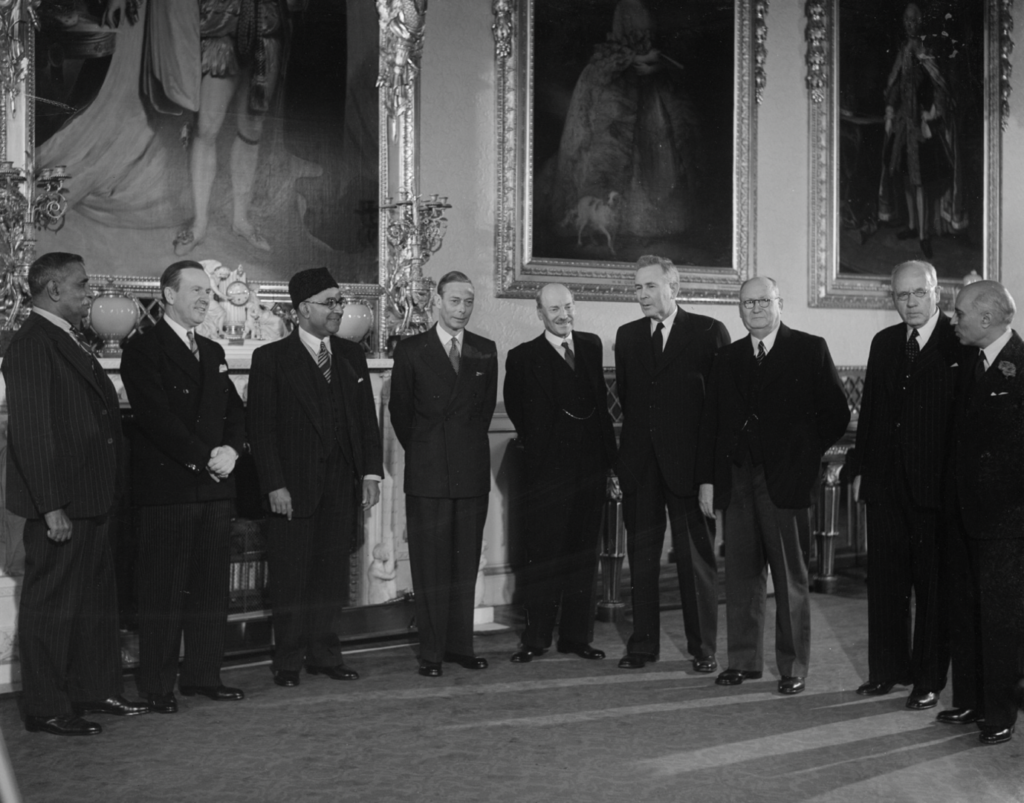
After that, full independence happened in a piecemeal fashion as the various countries became fully independent of the United Kingdom. India gained its independence in 1947. It actually wanted full independence, so that it would be a republic, owing no allegiance to a British monarch, if that could be avoided, but it wanted to remain a part of the new Commonwealth, too. At a conference of Commonwealth prime ministers held in London in 1949, the so-called “London Declaration” was announced, allowing republics and other countries with other structures to join the Commonwealth and the modern “Commonwealth of Nations” was born. The Commonwealth’s first head was, of course, the ruling monarch at the time, King George VI, with his daughter, the present Queen Elizabeth II taking over upon his death. That doesn’t mean that Prince Charles, the Heir to the British throne, will automatically become head of the Commonwealth when Queen Elizabeth dies. Commonwealth member states choose the organisation’s chief when the time comes, and they may vote to by-pass the Prince of Wales and select somebody from one of the other member states. As the Commonwealth says of itself on its website: “Since 1949 independent countries from Africa, the Americas, Asia, Europe and the Pacific have joined the Commonwealth. Membership today is based on free and equal voluntary co-operation.”
GOING FORWARD TOGETHER
The Commonwealth’s two newest member states are Gabon and Togo, both of which had once been French possessions. About his country signing up, Togo’s Foreign Minister Robert Dussey said membership opened the door to 2.5-billion consumers in the Commonwealth realm, offered new education opportunities, and tapped into a “craze” for English among his countrymen.
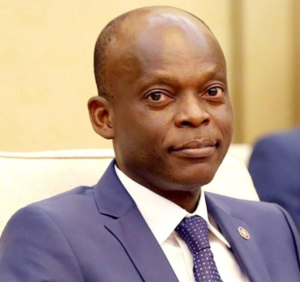
So, the Commonwealth can now boast 56 member countries with a joint population, as Dussey accurately put it, of 2.5-billion. Clubbing together is never a bad idea, especially when so many of the problems and challenges we face are global. What’s more, of the world’s 42 smallest states, 32 of them are Commonwealth members, with populations of 1.5-million or fewer. Another interesting fact is that 60% of the Commonwealth population are aged 29 or under, so they could be a rich source of labour for the rest. The member states are very diverse, too, being listed among the biggest, smallest, richest and poorest countries in the world. It’s doubly important for them to cooperate and work together, too, because they are especially vulnerable to such challenges as climate change and development issues, especially in a world dominated by very large countries, or groups of countries, such as the United States and the European Union. In the Commonwealth, size doesn’t matter, nor does wealth: all Commonwealth members get an equal say, regardless of size or how rich they are.
So for Gabon and Togo, now Commonwealth members, never having had much to do with Britain or its imperial ambitions, or not directly, trade within the Commonwealth is a strong possibility. What exactly do they bring to the club? Togo is Africa’s 6th largest producer of cocoa, tiny when compared with, say, Ghana or the Ivory Coast, and from Togo’s perspective, its cocoa crop may not bring much in as GDP but it’s still an important export, providing an income for almost 20,000 families. It’s not the country’s most important export, however; the top exports of Togo are petroleum oils and oils from bituminous minerals, although not from crude oil, to a value of $240-million (€234-million), along with preparations that don’t easily fit into any alternative classification. Natural calcium phosphates are another export, along with natural aluminium calcium phosphates and prosphatic chalk, worth $118-million (€115-million). In addition, there is Portland cement, aluminous cement (also known as ciment fondu which is a calcium aluminate-based hydraulic binder), slag cement, supersulphate cement and similar products worth $104-million (€101-million), electricity worth $97.2-million (€94.5-million) and soya beans, broken or whole, worth $84.2-million (€82-million). Valuable things, these beans.

The success of Togo’s private enterprises in the field of cocoa production is remarkable. Crops there and in other parts of Africa have been severely harmed by what’s called the ‘swollen shoot’ virus, caused by a pathogenic virus of the caulimoviridae family, which greatly reduces cacao yield in its first year of infection, usually killing the plant completely within five years. Togo’s chocolate does have its own advantages, however, such as its use of the rare old Amelonado variety of cocoa bean, which carries a special bitterness, very popular with true chocolate-lovers (as opposed to those who prefer it stuffed full of milk and sugar). Even so, many of Togo’s younger generation are keen to leave the land and seek employment elsewhere. Despite a gradual flight from the farms and plantations, Choco Togo (as the company is called) is actively seeking to expand its market to the rest of Africa, Europe, Asia and the United States. Its chocolate products are available in various boutiques in the Togolese capital, Lomé, as well as in France, Italy and Belgium and also closer to home in its neighbouring countries: Benin, Burkina Faso and Ivory Coast (although I’ve yet to see any in the UK). Furthermore, from the Commonwealth’s perspective, gaining two more members engaged in global trade can only be a positive step. The Commonwealth hopes to be expanding further, reaching a trade level of some $2-trillion (€1.94-trillion) by 2030. Idealists come and go but it’s money that makes the world go round. €1.94-trillion could make it go round very fast indeed.
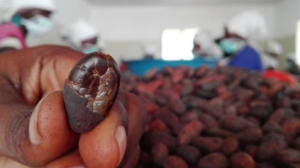
What about Gabon? Its exports have been rather less edible but perhaps more traditionally valuable on world markets. After all, a man can hardly parcel up a box of manganese ore for his lady friend (or a lady for her gentleman friend). In 2020, Gabon exported $1.23-billion (€1.18-billion) of manganese ore, making it the world’s 2nd largest exporter of the stuff. In the same year, manganese ore was the 2nd most exported product in Gabon. The main destinations of Gabon’s manganese ore exports have been China (exports worth €737-million), India (€142-million), Norway (€98-million), the United States (€52-million), and Russia (just short of €35-million). That route may be temporarily blocked right now because of Putin’s imperialist ambitions. Gabon also exports wood, sawn or chipped, wood sheets for veneering (including those for plywood), along with petroleum oils from bituminous minerals (although not from crude oil) and other related products. You will certainly get the picture from that: Gabon’s main exports are petroleum products, which make up around 80% of them in value terms, followed by manganese, uranium and timber. Roughly 50% of its overall output goes to the United States, just ahead of the Netherlands, China and Malaysia. Gabon’s economy looks fairly healthy: according to the OEC (the Organisation of Economic Complexity), its exports were worth $4.34-billion (€4.16-billion) while its imports amounted to just $2.21-bn (€2.12-billion). Over the last few years, Gabon has been recording trade surpluses because of its impressive petroleum exports. With virtually no manufacturing industry of its own, Gabon is dependent on imports of consumer goods and capital equipment. Gabon’s main trading partners are China, the United States and the European Union. Manganese ores and concentrates remain the country’s chief exports, followed by sheets for veneering. It also exports cocoa beans, whole, broken, raw and roasted, along with gold and other metals.

WAVE THE FLAG (WHICH FLAG?)
According to the International Monetary Fund (IMF), Gabon’s performance has been mixed. Non-oil economic growth looked healthy at the start of the international financial crisis, driven by high oil and commodity crises. Manganese, with the chemical signature Mn and at number 25 in the periodic table has high electrical conductivity. It easily forms alloys and gives extra strength to steel, which means it is used in the manufacture of rifle barrels and the bars of prisons, among other things you don’t want to break too easily. Your body probably contains around 12 milligrams (Mg) of manganese and takes in a further 4 mg daily. Without it your bones could become spongy. Manganese is essential for the proper functioning of the medulla oblongata – the place where the base of your brain meets your spinal cord and therefore an essential route for the passage of information between them, and for the entire nervous system. In the body, Manganese is reserved in the kidneys, bones, and liver. Plants such as beans, vegetables, nuts, etc. are vast reservoirs of the manganese nutrients.
Rather strangely, you will also find it in fungicides such as “Maneb” (manganese-ethylene bisdithiocarbamate) because it helps to kill a variety of dangerous plant pathogens. Among its many advantageous qualities, it helps to protect banana and nut plantations from viral infections. Mind you, it’s not exactly rare. In fact, it’s the fifth most plenteous metal in nature. It’s also very reactive when mixed with other metals, readily melding with iron to help make various metallic felting designs. It’s useful stuff, if not exactly rare.
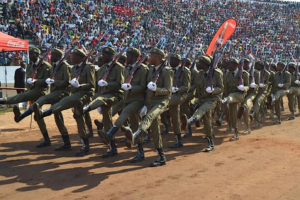
As for the Commonwealth, which began life as the “British” Commonwealth, made up of former British colonies enjoying the new-found taste of freedom, Mozambique was its first member with no history of involvement with Britain in any political sense. Mozambique, which had been a Portuguese territory, was the first country to join the Commonwealth without a previous British connection. That was in 2009, and its neighbours had been British colonies and had already joined the organisation. Membership for Mozambique made sense and undoubtedly boosted trade. Rwanda, which was a former Belgian colony, joined the Commonwealth in 2009, yet it hosted the 2022 annual conference of Commonwealth leaders, even if there are considerable doubts as to just how committed Rwanda is to democracy and human rights. Democratic countries that respect human rights use the Commonwealth to put pressure on their more dubious fellow-members. The United Kingdom is not in a strong position to emphasize the need for human rights, having announced its intention to quit the Council of Europe’s European Convention of Human rights in favour of some sort of charter of its own devising.
HUMAN RIGHTS ARE UNIVERSAL RIGHTS
Dunja Mijatović, the Council of Europe’s commissioner for human rights, said that replacing the proper Human Rights act with a British bill of rights would send the “wrong signal”, perhaps suggesting that a pick-and-mix selection of rights, selected to please a particular government (especially a particular prime minister), rather than protect its citizens, would suffice. It very clearly would not, although it would appear to be the option that would be preferable to British prime minister Boris Johnson. Mijatović concluded a five-day visit to the UK in June, which included a meeting with the deputy prime minister and lord chancellor, Dominic Raab. Afterwards, she said: “It is worrying that the proposed legal reforms might weaken human rights protections at this pivotal moment for the UK, and it sends the wrong signal beyond the country’s borders at a time when human rights are under pressure throughout Europe.”
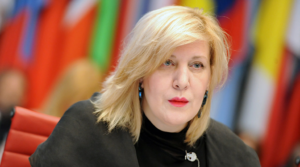
Raab admitted that the change was intended as a way to “restate” Britain’s sovereignty (why should it need that?) by sweeping away the country’s commitment to a universally recognised set of rules. The Council of Europe is the guardian of the European Convention of Human rights (ECHR); it could hardly hold sway over a rag-bag collection of odds and ends, hand-picked to please Boris Johnson and silence his critics. That’s not how the Commonwealth is supposed to work. The laws passed in Westminster for Britain are important as an example to other members of the Commonwealth, although they’re not obliged to copy them, of course. Mijatović pointed out that the new system touted by Boris Johnson’s government would “widen the gap between the protection of ECHR rights by UK courts and the case law of the European court”. She added that the changes had been proposed in a wider context of recent laws and policies that will inevitably impact heavily on human rights in specific areas, such as the right to freedom of peaceful assembly (Johnson would have apparently liked to make demonstrations – especially against him or his government – illegal), or on specific groups, such as refugees and asylum seekers, as well as, for example, Roma, Gypsy or Traveller communities. Mijatović is also worried about the possible impact of repealing the Human Rights Act on the so-called ‘Good Friday agreement’, which brought an end to bloodshed between the Catholic and Protestant communities of Ulster and thus on peace in Northern Ireland. The Republic of Ireland is not a member of the Commonwealth. A recent letter to The Irish Times explains why: “The Commonwealth Charter sets out its vision and aims, which include the aspiration to a Commonwealth which is ‘a strong and respected voice in the world, speaking out on major issues’. The recent UN General Assembly vote (March 2nd) on the condemnation of Russia’s invasion of Ukraine provided evidence of how close the Commonwealth is to reaching this goal. Of the 35 countries to abstain from this vote, nine of those who failed to speak out belonged to the Commonwealth.” In fact, Ireland left the Commonwealth in 1948, when the then Taoiseach, John A. Costello made the surprise announcement during a visit to Canada, possibly over an alleged slight but really because he could see no advantage for Ireland in staying.

The current British government’s determination to extract itself from the European Convention on Human Rights stems from the verdict of a Court of Human Rights judge that deporting asylum seekers to Rwanda, as the UK planned to do, is illegal. The UK government clearly doesn’t like being told that its preferred solution to a problem contravenes international law. The Law Gazette reported that: “Lord chancellor Dominic Raab has said that the Bill of Rights, ‘will strengthen our UK tradition of freedom whilst injecting a healthy dose of common sense into the system’. However, the Law Society described it as ‘a lurch backwards for British justice,’ and one public law expert told the Gazette that the bill would ‘dilute the rights of the individual, or rather some individuals, against executive decision-making’. Presumably that is the UK government’s intention. Mijatović stressed the importance of the protection of rights that are granted under the European Convention on Human Rights to peace in Northern Ireland and the Good Friday Agreement, saying: ‘It is crucial that this foundation is not undermined as a result of the proposed human rights reforms.’ It rather looks as if that is precisely what is happening. The Bill of Rights, if voted through, would mean the ECHR’s rulings and decisions will no longer be binding upon the British courts. Britain’s ministers have assured the Court that the UK would not abandon the European Convention on Human Rights and that it will still be under the jurisdiction of the ECHR based in Strasbourg. Mijatović pointed out, however, that the Bill of Rights would significantly alter the way in which people can bring cases to UK courts and have their rights under the European Convention on Human Rights effectively enforced.
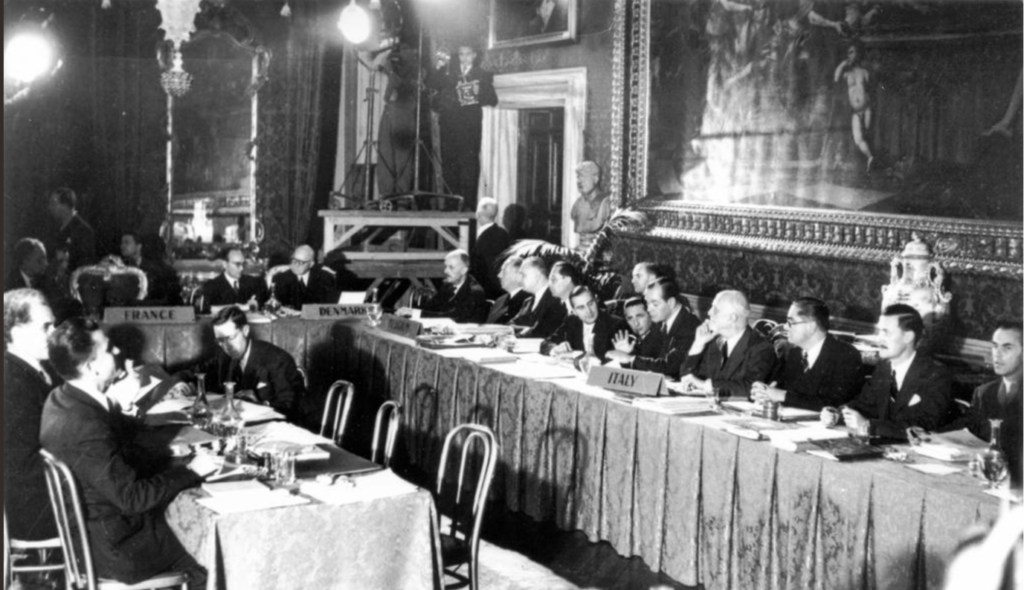
To digress from the Commonwealth for a moment, in an attempt to put Northern Ireland’s past behind it, the UK has proposed what it called “the Legacy and Reconciliation Bill”, which would grant conditional immunity from prosecution to people accused of very serious crimes, including murder, during the 3-decades-long conflict there, with terrorist groups from both sides airing their grievances with bombs and bullets. As I said, it doesn’t relate to the Commonwealth, but it could if some Commonwealth countries decided to adopt a similar approach. Mijatović is not happy about the proposed new Bill, suggesting it would represent not so much ‘immunity’ as ‘impunity’. She stressed that the proposed legislation casts doubt over the potential of “justice” to contribute to truth and reconciliation in Northern Ireland, also urging a thorough investigation into the murders of journalists Martin O’Hagan and Lyra McKee and that the accused be punished without impunity. The Commonwealth nations would never accept such rules. Mijatović urged the UK government to ensure that the Northern Ireland Human Rights Commission can operate “independently and effectively” in line with the Paris Principles of the UN. In case you’re wondering what that means in practical terms, the Principles relating to the Status of National Institutions were adopted by the UN General Assembly in December 1993. As a consequence, a national institution “shall be vested with competence to promote and protect human rights”. It must also “be given as broad a mandate as possible, which shall be clearly set forth in a constitutional or legislative text, specifying its composition and its sphere of competence”. Given these provisions, Johnson’s government risks not only breaching the European Convention on Human Rights (about which he doesn’t seem to care very much) but also the United Nations’ ‘Paris Principles’.
Just to be clear, the Paris Principles have no link with the Commonwealth, although they should apply to every country in the United Nations, including Commonwealth countries, of course. The Principles were drafted at an international workshop of the National Human Rights Institutions in Paris in 1991, and they were subsequently adopted by the United Nations General Assembly in 1993.
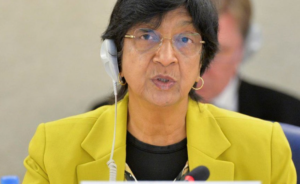
The Anniversary of the Principles coincided with the 20th Anniversary of the Vienna Declaration and Programme of Action, adopted at the World Conference on Human Rights in Vienna in 1993. “This provides a unique opportunity to reflect on the NHRIs’ achievements and to reiterate the importance of ensuring that NHRIs attain and maintain credibility at the national, regional and international levels by remaining in compliance with the Paris Principles,” said UN Human Rights Chief Navi Pillay at the time, the 26th session of the International Coordinating Committee of National Institutions for the promotion and protection of Human Rights (6-8 May 2013).
It’s not clear if it’s a matter about which Johnson’s cabinet have given much thought. But, as trade opportunities dwindle as a consequence of Johnson back-sliding on human rights, what options are the government left with? International Trade Secretary Anne-Marie Trevelyan has now met with representatives of the Gulf Cooperation Council (GCC) in Riyadh to begin negotiations over trade with them. The six-nation bloc includes Saudi Arabia, Bahrain, Kuwait, Oman, Qatar, and the UAE, not all of them famed for their respect for human rights. There is an old saying in English: if you sup with the devil, you must use a long spoon. I don’t know how long a spoon they’ve been using, but it won’t have been long enough for everyone.
MPs from the Conservative, Labour, Liberal Democrat, Green, and Scottish National parties said the UK government
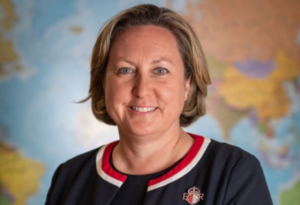
risked “facilitating” human rights abuses by pushing ahead without the protections. In a letter to Anne-Marie Trevelyan the MPs said the new policy “presents a clear U-turn in UK policy” and that the launch of talks was “in direct contradiction to the former Foreign Secretary’s assertion that the UK ‘shouldn’t be engaged in free-trade negotiations with countries abusing human rights’.”
The MPs noted that the government had “failed to even mention human rights in its public statements” regarding the planned free trade agreement and that meetings with top officials from the countries “were held during parliamentary recess, thus limiting their potential to be scrutinised by this House”.

MPs to sign the letter include Peter Bottomley, Conservative MP and Father of the House, Caroline Lucas the former Green Party leader, Drew Hendry, Scottish National Party trade spokesperson, and Brendan O’Hara, the chair of the All-Party Parliamentary Group (APPG) on Human Rights in the Gulf.
The government is proposing new laws to restrict the right to protest, for example by setting an upper noise limit. Under it, you could protest but only if you whisper your slogans. It would not be a case of shouting: up with the workers, or else! It would have to be more like a very subdued: up with the workers, please, if it’s no trouble! The proposed new rules also use terms that are open to a wide variety of interpretations, such as ‘intensity’ and ‘serious unease’, which leave a lot of judgement in the hands of individual police officers. Police officers I have spoken to prefer to have clear-cut rules that anyone can understand, so they know why they’re performing an arrest, not a set of proposal whose interpretation is down to the individual judgement of an officer at the scene. That’s not a judgement call most police officers I’ve spoken to feel qualified to make. The Commonwealth clearly could not be based on such amorphous and lily-livered principles
COMMONWEALTH OR COMMON POVERTY?
Nobody can ever know for sure if joining the Commonwealth will bring prosperity to a country. How can they? Crystal balls are in short supply. But the Commonwealth has certainly proved helpful up to now; it has a positive record. One of the greatest challenges facing many Commonwealth countries is the global food crisis and soaring prices. For instance, the Commonwealth Secretariat and Inter-American Institute for Cooperation on Agriculture have now signed a Memorandum of Understanding (MoU) to strengthen cooperation on key agricultural and fisheries challenges confronting the Commonwealth Caribbean, the region of the Caribbean where English-speaking countries and territories once constituted the Caribbean portion of the British Empire but which are now part of the Commonwealth, and to deepen ongoing cooperation on digitalisation in agriculture. It was signed by the Commonwealth Secretary-General Rt Hon Patricia Scotland, QC and IICA Director General, Manuel Otero. As Secretary General Scotland said afterwards, “In uncertain times, strengthening regional and global cooperation is key. If we are to build the resilience of the most vulnerable members in our Commonwealth family, then we must work together to fight what can seem to be the overwhelming challenges of climate change and threats to food security. I am delighted that IICA and the Commonwealth Secretariat are joining forces to tackle these challenges.”

The Director General of the IICA, Manuel Otero was equally enthusiastic: “Caribbean countries are key to ensuring food security at the global level,” he told reporters. “At IICA we are committed to supporting the development of resilient, innovative, inclusive and profitable agriculture where new generations have opportunities to feed their families with dignity and generate well-being in their communities.”
As recently as June, thousands of international delegates gathered to investigate what science-based innovative actions could be taken or intensified to preserve and develop our oceans. Hosted by Kenya and Portugal, it was the largest such get-together yet. The Commonwealth Secretary-General, Patricia Scotland, QC, made a powerful plea for more to be done – and urgently – to help the sea’s inhabitants. She pointed out what she called “the alarming lack of funding for ‘ocean action’ and called for ‘enhanced finance and partnerships’ to tackle the most urgent challenges, such as climate change, overfishing, marine plastic pollution and coral reef decline. She told delegates: “We meet at a critical moment for the ocean – the most precious, life-giving, and yet undervalued, under-researched and recklessly exploited, natural wonder of our planet.” More than three billion people around the world depend on marine and coastal biodiversity for their livelihoods, according to the United Nations. The ocean also plays a vital role as a climate regulator and a mitigator of climate change, due to its capacity as a ‘carbon sink’, absorbing large amounts of carbon from the atmosphere. It has also absorbed more than 90 per cent of the excess heat in the climate system.

We have witnessed worldwide declines in the viability of inshore fisheries, both in Commonwealth waters and elsewhere. Writing in Scientific American’s May edition, journalist Ellen Ruppel Shell wrote about the problems facing fisheries in the United States: “The truth is that soon fish farming may be the only way for Maine’s struggling seafood workers to make any bucks at all.” It sounds depressing, and she goes on to explain how we’ve reached this parlous state-of-affairs when humankind is blessed with bio-rich oceans and what we used to think was a limitless supply of fish and crustaceans. “Thanks to overfishing, parasites and rising ocean temperatures, along other threats, nearly all of Maine’s commercial fisheries are in free fall,” Shell wrote. Or, as Patricia Scotland told that conference: “We meet at a critical moment for the ocean – the most precious, life-giving, and yet undervalued, under-researched and recklessly exploited, natural wonder of our planet.” We have, it seems, been rather taking it for granted. The English poet John Masefield loved the sea. “I must go down to the sea again,” he wrote in his 1902 poem, Sea Fever, “to the lonely sea and the sky, And all I ask is a tall ship and a star to steer her by, And the Wheel’s kick and the wind’s song and the white sail’s shaking, And a grey mist on the sea’s face and a grey dawn breaking.” In another poem, called “Cargoes”, he eulogised its less romantic aspects: “Dirty British coaster with a salt-caked smoke stack, Butting through the Channel in the mad March days, With a cargo of Tyne coal, Road-rails, pig lead, Firewood, ironware and cheap tin trays.” Perhaps if we’d taken more notice of the damage that “dirty British coasters” might be doing instead of waxing lyrical about the sea’s undoubted beauty, we’d have done less harm to it.
But there’s more to the Commonwealth, of course, than the world’s oceans and their sustainability as sources of food. It was the prospect of easier trade deals and an “entrée” (if I may use that word under the circumstances) into the Anglophone world, chiefly represented by the United States, of course, that drew Gabon and Togo to join the ‘club’. What’s in for them? Well, the statement of the Heads of Government that wound up this conference says it all. It includes such aspirations as: “We acknowledge that land, including its waterbodies, is both a source and sink of greenhouse gases and supports billions of people for their food, livelihoods, and wellbeing. The Earth’s climate is changing at an alarming rate and the associated impacts and risks are being felt increasingly across a range of terrestrial ecosystems, which are essential for nature and people.”

It continues by stating that the leaders: “Note that these impacts threaten global efforts to achieve the 2030 Agenda for Sustainable Development (2030 Agenda), climate goals including the UN Framework Convention on Climate Change, the Paris Agreement, and the Convention on Biological Diversity. For many vulnerable Commonwealth member countries, especially developing countries.” It’s basically a recognition that things have been going wrong and a solemn undertaking to address that problem (or problems). In the short term, it could mean for Gabon quicker, easier sales of Manganese ore and its derivatives and for Togo, wider sales possibilities for its chocolate. The Conference pledged to do more to address insecurities over food, energy and climate whilst pledging to take a stand against violent extremism. Then there is the Prince of Wales and his initiative to help save the planet, which he named Terra Carta. He told the conference that he wants to see all countries overcoming long-term difficulties and meeting challenges in terms of health so as to enrich themselves and their communities without damaging the world around them. “The ‘Terra carta’,” he told the delegates, “offers the basis of a recovery plan that puts Nature, Peoples and the Planet at the heart of global value-creation – one that will harness the precious, irreplaceable power of Nature, combined with the transformative innovation and resources of the private sector.” It sounds like a good idea, as long as somebody keeps a close eye on what the private sector is getting up to and just how it aims to achieve the Prince’s admirable goals.

